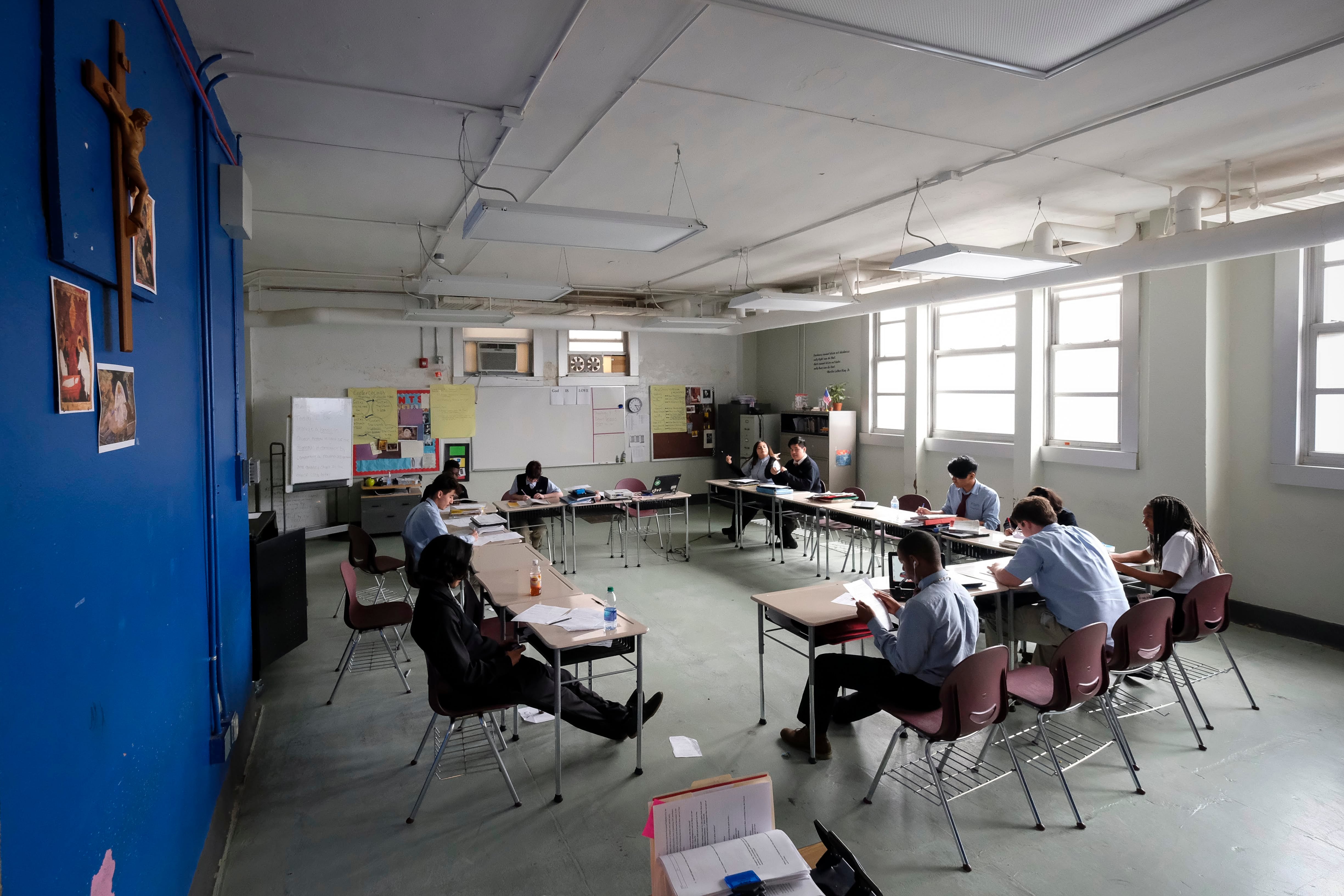Indiana legislators reshaped education in significant ways this year by helping schools cope with setbacks from the COVID-19 pandemic, eliminating the threat of state takeover for struggling schools, nearly doubling funding, and broadening school vouchers for middle-class families.
The additional $1.9 billion lawmakers directed toward education over the next two years will enable school districts to raise teacher pay — a win for educators that comes a year and a half after thousands rallied at the statehouse to demand better pay.
“It’s hard to believe looking at this budget that many parents and education leaders feared massive cuts less than a year ago due to the pandemic and economic downturn,” Stand Indiana Executive Director Justin Ohlemiller said in a statement. The legislative session made meaningful progress toward “elevating the teaching profession,” he said.
Lawmakers will return later this year to discuss redistricting after receiving new Census data, but the regular 2021 legislative session ended last week. Here’s what you should know about the education-related bills that passed:
COVID-19 relief
With Gov. Eric Holcomb’s approval, the state will allocate $150 million to help fund summer school expenses, which may be larger than usual because of the need to teach students who fell behind during COVID-19 school closures. The bill (HB 1008) requires schools to show how they will accelerate student learning.
The state required schools to administer standardized ILEARN tests this school year, which it skipped last spring. But the legislature’s one-year measure (HB 1514) exempts districts from state A-F grades and any subsequent penalties for poor performance. This ensures test results will not reduce any teacher’s pay this year.
Lawmakers also decided the state, the main source of pre-K-12 funding, would fully compensate schools and districts for their students learning virtually this school year. Senate Bill 2 temporarily overrides the normal state formula that pays schools 85% of its per-pupil funding for online students.
Voucher expansion
Lawmakers approved a significant and controversial expansion of the state’s already broad private school voucher program, setting one of the highest family income ceilings in the nation.
Under the measure (HB 1001), certain families making up to 300% of the eligibility level for federally subsidized meals — a measure of poverty — will have access to vouchers to pay for private school. This means families of four with an income of about $145,000 — nearly double the Indiana median income for families — will be eligible. And the legislature increased the value of all vouchers to cover 90% of a student’s tuition and fees.
Lawmakers also directed $3 million for 2022 and $10 million for 2023 to create education savings accounts. The accounts will pay for schooling and therapy for students in special education, a benefit that further supports school choice for middle-class families.
Ending state takeovers
Lawmakers repealed the consequences for failing schools, ending the state’s yearslong experiment in aggressively taking over schools with chronically low test results.
Under the measure (HB1514), district schools with failing grades no longer face the threat of state seizure or the steps that precede it, such as a requirement that districts attempt to improve schools by replacing personnel or working with outside experts. Charter schools with low grades will be able to seek renewals without special permission from the state. And failing private schools will be able to receive vouchers for new students.
The state is not currently running any schools. As popularity of the punitive measure waned, the State Board of Education ended the state’s takeover of remaining schools in January 2020.
This marks the second year in a row that lawmakers have reversed a piece of the state’s frequently criticized accountability system. During the 2020 session, lawmakers overwhelmingly supported eliminating test scores as a significant part of teacher evaluations.
Teacher licensure
The legislature approved a new route for teachers to earn their license in Indiana, intended to reduce the state’s teacher shortage. Under the new law (SB 205), people who are 26 or older and hold a bachelor’s degree may receive a license by completing an alternative training program — including an online program — and passing a state licensing exam.
Educators with alternative licenses, however, may not teach special education.
Union membership
In a blow to teachers unions, educators will have to opt in to union membership each year before dues can be deducted from their paycheck, under a new law. The measure (SB 251) requires that teachers sign a withholding form every year. Schools then have to confirm their decision via email before a dedication can be made.
Lawmakers who supported the bill pointed to the Janus v. AFSCME Supreme Court ruling that collecting fees from non-union employees violated their rights, WFYI reported. Critics of Senate Bill 251 said that nothing in the court ruling called for requiring annual approval. The controversial measure will add additional annual steps in order for educators to join and maintain their membership in the Indiana State Teachers Association.
Controversial research
Lawmakers passed a bill (HB 1266) requiring the Indiana Department of Education to solicit ideas to make school transportation and facilities more efficient. While it’s unclear what sort of recommendations the report may yield, education lobbyists and district officials pushed back against the idea over concerns about the state forcing consolidation or other cost-cutting measures.
The report is due next March.






